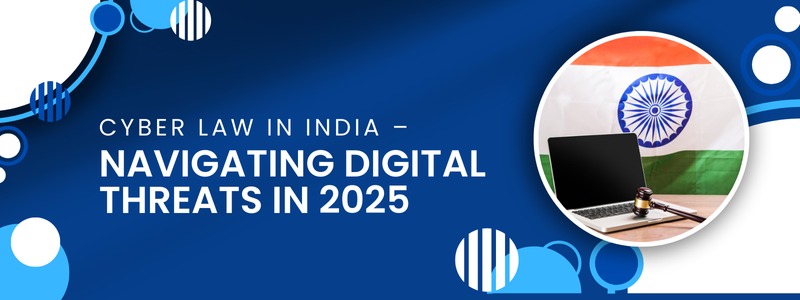
The Growing Importance of Cyber Law in India
With India’s rapid digital transformation, cyber threats have escalated, making cyber law in India more crucial than ever. From deepfake scams to ransomware attacks on businesses, the legal framework governing digital security is constantly evolving. The IT Act, of 2000, along with newer amendments like the Digital Personal Data Protection Act, of 2023 (DPDP Act), provides individuals and businesses legal protection against cybercrime.
Key Cyber Law Amendments in 2025
As cyber threats become more sophisticated, India has introduced stricter regulations on AI-driven fraud, digital identity theft, and online privacy. The DPDP Act has redefined data protection standards, imposing penalties of up to ₹250 crores on companies failing to secure user data. Additionally, new cybercrime units have been set up across major cities, including Delhi, Mumbai, and Bengaluru, for faster complaint resolutions.
Rising Cyber Crimes and Legal Recourse
Cybercrime in India has surged, with cases of phishing scams, social media impersonation, and cryptocurrency fraud at an all-time high. Victims can file complaints with the Cyber Crime Investigation Cell, or seek legal action under Sections 66C and 66D of the IT Act for identity fraud and deception. The Supreme Court has also issued directives for faster trial procedures for cybercrime cases, ensuring justice is served promptly.
Corporate Compliance: How Businesses Must Adapt
With the rise of digital transactions, corporate cyber compliance is more important than ever. Businesses must now follow strict protocols under the DPDP Act and IT Act to protect customer data. E-commerce platforms, fintech companies, and social media firms must implement end-to-end encryption, data localization, and AI-driven fraud detection to avoid hefty penalties.
Social Media and Digital Defamation Laws
Social media is now a major legal battleground, with cyber defamation, online harassment, and deepfake-based identity thefts becoming widespread. Under Sections 499 and 500 of the IPC, individuals can take legal action against defamatory content. Additionally, platforms like Instagram, Twitter, and YouTube must now comply with stricter takedown policies under India’s Intermediary Guidelines 2024.
Conclusion
With cyber laws in India evolving rapidly, expert legal counsel is crucial for individuals and businesses. At Geetansh Napgal, India’s top law firm India can help navigate compliance, fight cyber fraud, and ensure digital security in an era of AI-driven cyber threats.


